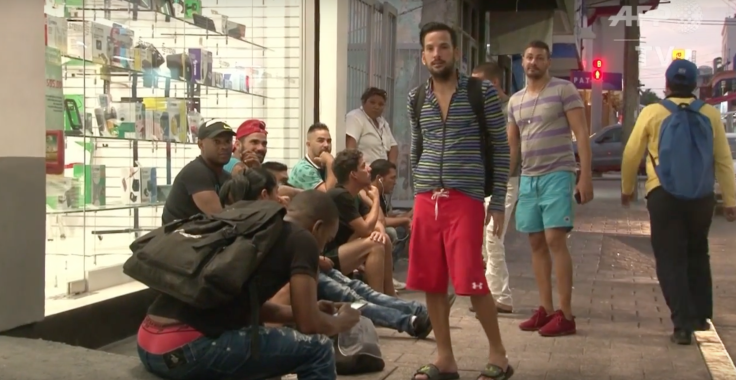Lockdowns, quarantines, closing down of schools and offices, cancellation of any event warranting large group gatherings- all to curb the rising coronavirus pandemic. And yet there are thousands of asylum seekers living in the border towns near the Texas-Mexico border, waiting for their U.S. immigration hearings, living in such dire conditions that the risk of them being the next victims of coronavirus is very high.
In the border town of Matamoros, the living conditions are unsafe and access to health services is way beyond poor. And living here are 2,000 migrants in an outdoor camp across the Rio Grande from Brownsville. They sleep in tents, share portable bathrooms, sinks- in short, the chances of coronavirus spreading rapidly in this camp are dangerously rising every day.
As the arrival of the virus in the camp seems imminent, Helen Perry, the group's executive director shared that the Global Response Management, the nonprofit running the only health clinic in the camp, has launched some contingency plans. They will be erecting two-tent, 20-bed field hospital in the camp in case the virus hits the camp as well.
"We are very concerned," she said. "You have a vulnerable, displaced community in poor living conditions without access to health care, where food is communal and housing is communal. It's a recipe for explosive infection and transmission."
In Juarez, shelters have standing water on the floor and no soap in the bathrooms. The courtyards are muddy, the living conditions are far below average, making it another hotbed for the coronavirus to take hold of its 1,500 migrants.
"My biggest concern is that people are going to start dying," said Taylor Levy, an El Paso-based immigration attorney. "The conditions are abysmal here."
And even as steps, like making the migrants aware of the virus, installing new outdoor sinks, stockpiling boxes of hand sanitizers and bleach, and canceling group meetings at the Matamoros camp, are being taken, the situation is far from being under control. Half the medical case in the camp are respiratory-related, which includes pneumonia and influenza, plus there are currently 60 pregnant women in the camp- if the coronavirus outbreak does reach the camp, it would be impossible to curb in time.
"Ultimately, there’s only so much you can do when 2,500 people are living in a space the size of two football fields," Perry, the health care director at the camp said.

© 2025 Latin Times. All rights reserved. Do not reproduce without permission.


